Cannabinoids: Differences Between CBD vs CBG, CBDA, CBN, and CBC
Written by
Michael Levin
Medically reviewed by
Zora DeGrandpre
Summarize
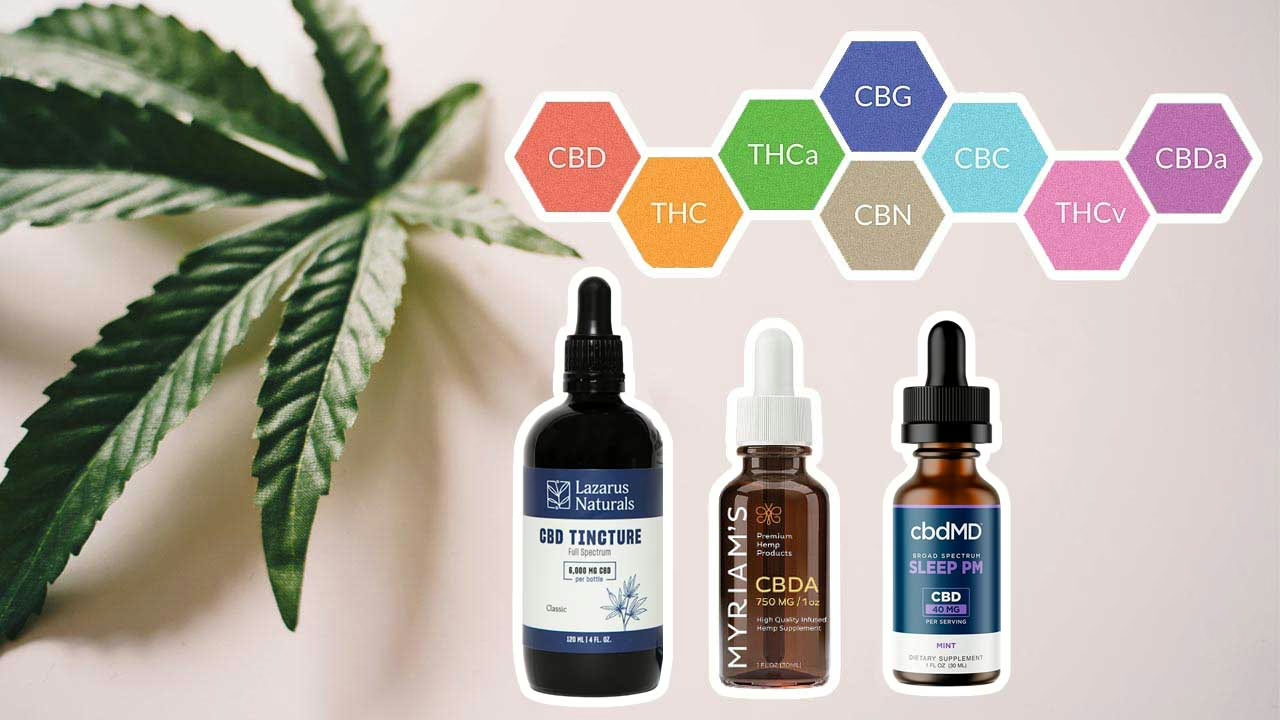
Are you looking for guidance on CBN vs CBG vs CBD? People are waking up to the fact that natural plant wellness goes far beyond CBD!
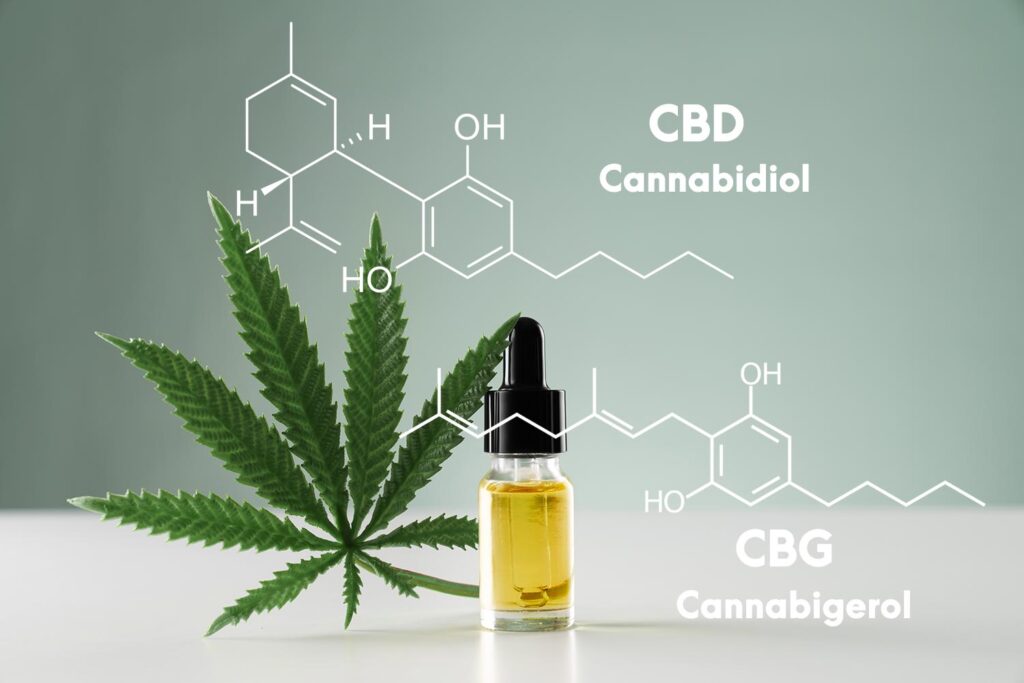
TL;DR (Too Long; Didn’t Read):
CBD, CBN, CBDA, CBG and CBC are different cannabinoids found in the hemp plants. Each cannabinoid is unique. Hemp plants are specially cultivated to produce low levels of THC to meet the federal law that cannabinoid products must contain less than 0.3 percent THC. CBD is more studied than other cannabinoids.
Table of Contents
While products like straight CBD oil can offer a wonderful introduction into the world of plant wellness, the truth is that cannabinoids may do their “best work” when they are brought together as a “full spectrum” product acting synergistically as part of what researchers call the “entourage effect”. Of course, the average person looking for relief, relaxation and restoration from CBD products isn’t a researcher. They just want to know which cannabinoids to be looking for on the labels of their favorite products to tap into the potential synergistic benefits of different cannabinoids.
The good news is that diving in to do your research can help you find a cannabinoid product that feels like it was made just for your wellness needs! You’ll also find that learning about CBD vs CBG vs CBN is actually just the beginning because options like CBDA and CBC may also offer what you’re seeking for wellness.
Yes, talking about the different cannabinoids can feel like you’re doing a dance with the alphabet when you’re first learning about the options available. However, the only thing these varieties really spell out is more wellness in your life when you get right down to it! Take a look at what’s behind the cannabinoids that accompany CBD.
What Are Cannabinoids?
While everyone from members of the research community to people obsessed with reaching optimal wellness states consider cannabinoids to be game-changers, the simplest answer is that cannabinoids are naturally occurring compounds found in the cannabis plant.
Cannabinoids affect us by binding onto the cannabinoid (CB) receptors in the body and brain. What makes cannabinoids so important for a variety of wellness needs is that they bind to the cannabinoid receptors in the human body specifically to impact how cells communicate. Cannabinoids are most closely identified with affecting the function of the central nervous system. That alone makes these natural wonders so important for anyone seeking relief from physical or mood issues.
While most people are very familiar with CBD (cannabidiol) due to its fast-growing popularity, it’s a misconception that CBD is the only cannabinoid used for human consumption. More than 100 cannabinoids isolated so far are commonly used as wellness aids, even though no other cannabinoid comes close to touching the mainstream popularity and overall versatility of CBD.
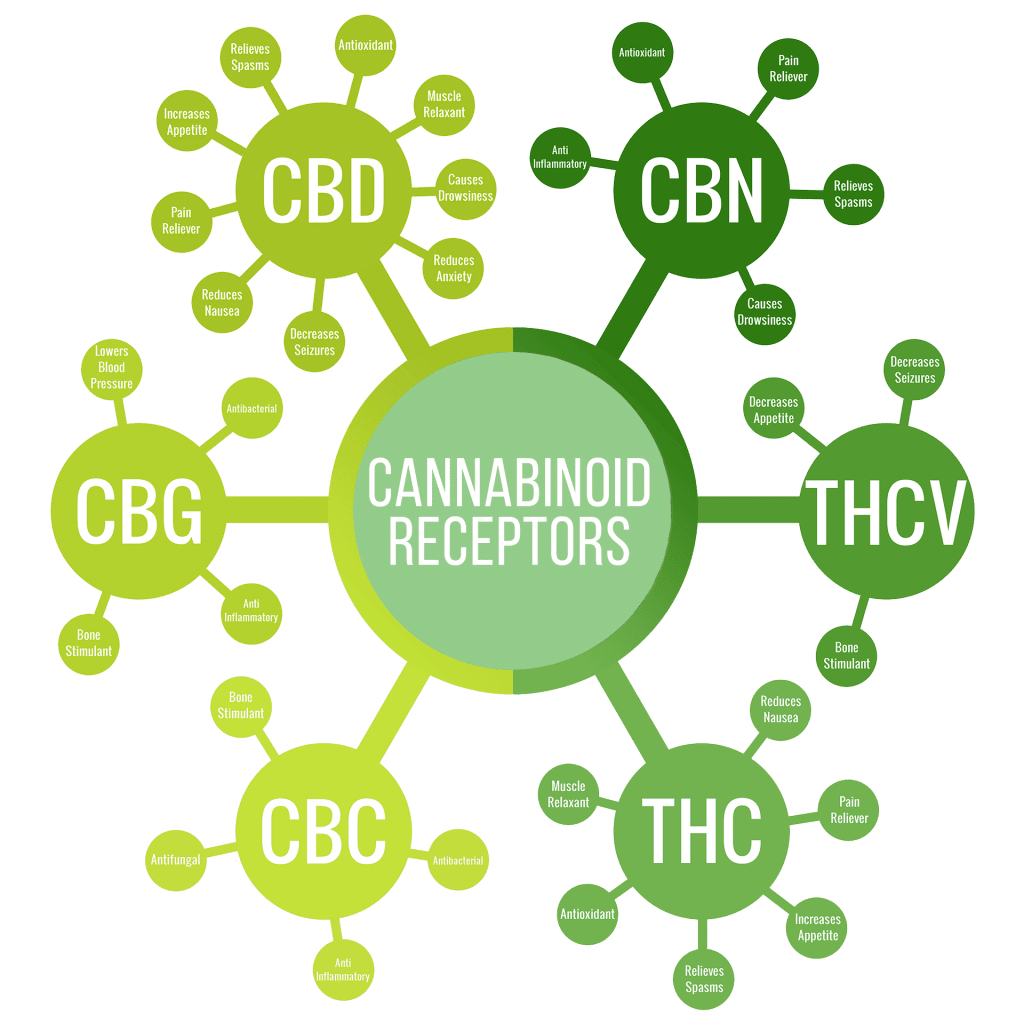
Differences Between Cannabinoids
When consumed, cannabinoids bind to the CB1 or CB2 receptor sites within the body. However, different cannabinoids bind to receptors differently to produce different effects. This is where it’s helpful to know about the differences between cannabinoids that are available for consumption.
How Does the Body Use Cannabinoids?
The scientific community is still learning about how cannabinoids interact with the body. While we know they work by binding to receptors, the true possibilities for treating different conditions aren’t yet fully known. What we do know is that cannabinoids can have soothing effects when they bind to receptors throughout the central nervous system. They even appear to change the way that cells send and process messages. This is why so many people seem to have great results when using cannabinoids for mood issues.
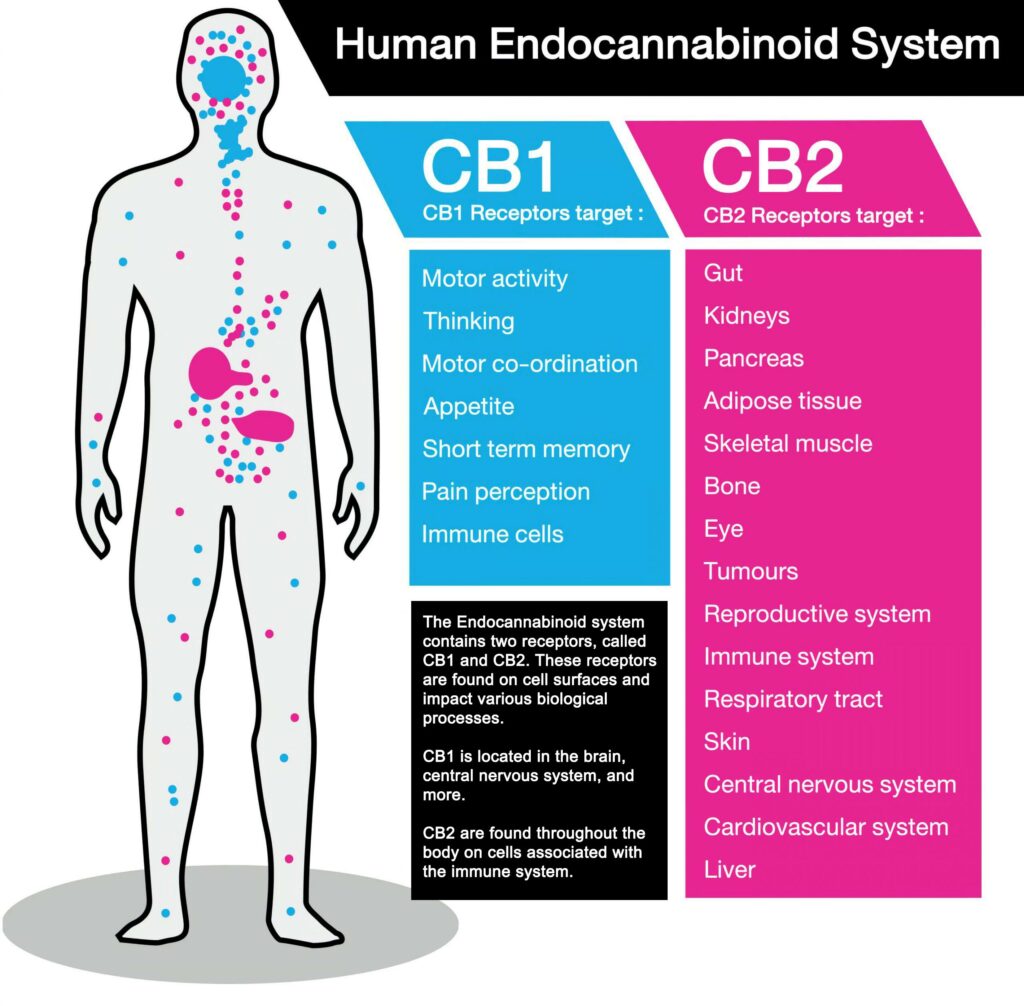
What is CBD?
The most popular cannabinoid on the wellness market today, CBD doesn’t produce the “high” that is experienced with marijuana containing tetrahydrocannabinol (THC). What is CBD oil? CBD oil is simply a form of CBD that can be taken orally or sublingually. While CBD can also come in extract, capsule or edible forms, many people prefer oil because it provides a quicker absorption time with the ability to tailor dosage.
What is CBN?
What is the major difference between CBD and CBN? CBN (cannabinol) is derived from THC and is considered mildly psychoactive. What is CBN extract? CBN extract is produced by aging THC using light and oxygen exposure over time until it converts to a new compound. It is commonly used for sleep support.
Potential Benefits of CBN
CBN forms as THC components break down. CBD is more studied than CBN, but research to date shows some potential benefits.
1. Sleep Issues
Quite honestly, CBN users keeping diaries have reported CBN helps them with sleep issues, like falling asleep and staying asleep. However, clinical research is very limited and has mostly involved animals and not humans. If you have sleep issues, CBN has the potential to help because it does cause drowsiness in some people and creates feelings of relaxation in general. As of now, you have to rely mostly on anecdotal evidence.
2. Antibacterial Benefits
It has long been known that CBD has antibacterial properties. In this study, CBN was like other cannabinoids, acting as an antibacterial agent against certain bacteria strains.
3. Appetite Benefits
This area needs more research, but a recent study involving rats found that CBN consumption led to the rats eating more soon after they had eaten.
4. Antioxidant Benefits
A recent research project found that CBN may protect neurons due to oxidants. The death of neuron cells contributes to neurodegenerative disorders. This is a particularly exciting study because it found that CBN protected nerve cells independently of the activity of the endocannabinoid receptors.
What is CBG?
Commonly referred to as the “mother of all cannabinoids” by researchers, CBG (cannabigerol) is actually a cannabinoid that other cannabinoids are synthesized. That’s another way of saying that it’s a parent molecule found within the cannabis plant. While cannabinoids like CBD are often known as “body” cannabinoids because it primarily affects various body functions, CBG is known as more of a “brain” cannabinoid based on the way it appears to interact with receptors and its effects on the neurological system. CBG is non-psychoactive and does not produce a “high”.
Not only is CBG commonly found in consumer products, but also interest in the compound is growing thanks to a growing body of research pointing to its potential benefits for both physical and neurological health!
Potential Benefits of CBG
CBG is a precursor cannabinoid for CBD and THC. Since it breaks down as the hemp plant grows and is exposed to heat and light, non-intoxicating CBG is not naturally found in large quantities. Yet, the limited research to date has found it has the potential to deliver various benefits to the human body.
A study published by the CDC found that an estimated 20.4 percent of adults experience enduring discomfort. That is 50 million people!
Following are a few clinical studies investigating the potential benefits of CBG.
1. Relief
According to researchers, CBG may serve as an antioxidant so it also has analgesic properties.
2. Antibacterial Activity
CBG has also undergone research on its antibacterial activity. A 2020 study found that CBG has strong antibacterial properties against certain bacteria, including MRSA.
What is CBC?
Like CBD, CBC is considered a non-psychoactive cannabinoid. While CBC binds primarily to the CB2 receptor, there’s potential to use this particular cannabinoid as a “companion” cannabinoid to those that bind to the CB1 receptor.
Potential Benefits of CBC
In studies, researchers can pair CBC with THC to measure its possible synergistic benefits. Over the years, researchers have tested the effects of CBC on many aspects.
CBC cannabinoid may benefit neurological health. As studies continue on the benefits of CBC, it appears it has positive effects on mood and neurotransmitter health.
1. Mood
CBC is a major phytocannabinoid that has been found to act on anandamide molecules. These molecules impact feelings of motivation and pleasure. A study of CBC that was taken with CBD and THC led to an elevated mood in the participants.
2. Neuroprotective Properties
CBC was also found to protect neural stem progenitor cells in the brain. These are cells that manage the brain and nervous system’s neurotransmitters. By protecting these cells, neurological health may be preserved.
What is CBDA?
A “wild card” among cannabinoids, CBDA (cannabidiolic acid) works differently from the other compounds on this list. The big difference between CBD and CBDA is that CBDA doesn’t bond to the CB1 or CB2 receptors.
Potential Benefits of CBDA
CBDA is the raw form of CBD. It works by interacting with the COX-2 enzymes associated with the development of discomfort.
It instead lengthens the effects of the body’s endocannabinoid system by inhibiting the enzymes that break down the natural endocannabinoids. There’s evidence from a study published in 2013 suggesting that CBDA activates serotonin receptors in the brain.
1. Antiviral Properties
A recent study found that CBDA may have the ability to serve as an antiviral intervention because of its ability to bind to spike proteins.
2. Entourage Effect
Research at the Lambert Initiative for Cannabinoid Therapeutics found CBDA may play a big role in the entourage effect. This study found that a cannabis extract can lead to concentrations of CBDA that are 14 times higher in the bloodstream than taking CBDA alone.
What is CBGA?
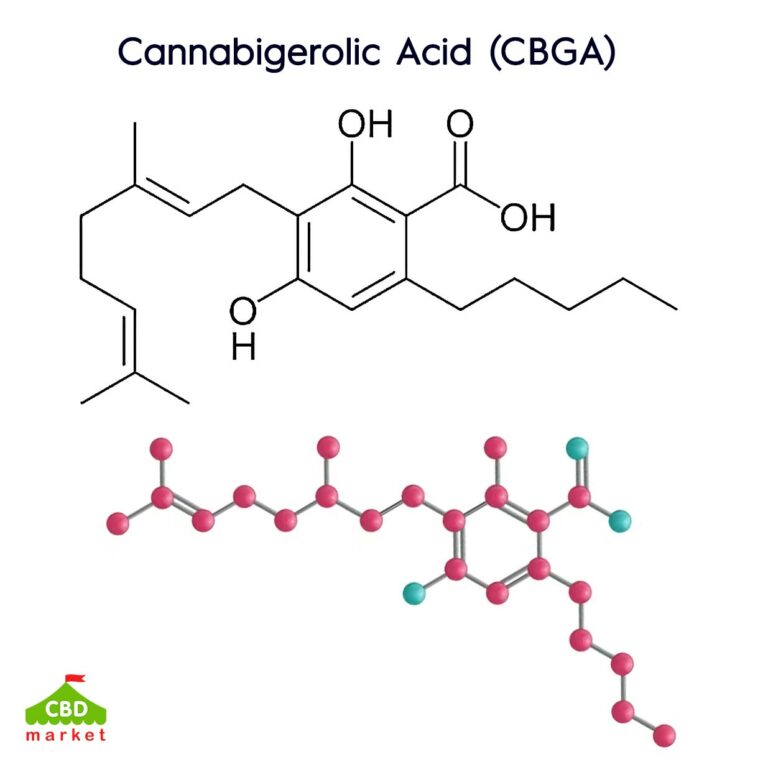
CBGA (cannabigerol acid) is a building block for cannabinoids that include the more well-known CBD and THC. It is a minor cannabinoid and fairly rare because of the conversion process that takes place as the hemp plant matures. Research on CBGA benefits is very scarce.
Potential Benefits of CBGA
Research concerning CBGA benefits is scarce, but cannabinoid is experiencing increasing numbers of clinical studies.
1. Anticonvulsant
There is interest in further investigating CBGA as an anticonvulsant, but much more research is needed.
2. Antioxidant
Different studies investigate the relation between CBGA and cardiovascular diseases. An in vitro study found CBGA reduced the enzyme aldose reductase, contributing to heart disease. If researchers determine that CBGA is an antioxidant, the cannabinoid may benefit people’s health in many other ways.
Yet another study found that CBGA and other cannabinoids have an antioxidant impact similar to that of vitamin E.
3. Block Coronavirus
The research made by the Oregon State University shows that CBGA (cannabigerolic acid) and CBDA (cannabidiolic acid) in hemp have the ability to bind together with the SARS-CoV-2 spike protein and block a critical step in the process the virus uses to infect people. This promising research regarding hemp and COVID-19 may be a significant contributor to the fight against Coronavirus.
Which Cannabinoid to Choose?
What is the average consumer looking to get the full benefits of all of the consumer-ready cannabinoids on the market to do?
In truth, trying to create a personalized blend by sourcing different cannabinoids separately can be difficult. In addition to finding it difficult to source different cannabinoids from respected, transparent companies known for offering quality, a person who doesn’t spend time in a lab may not have any idea about how to choose appropriate dosages for cannabinoids. This is where knowing where to turn for a ready-made cannabinoid blend is helpful.
CBN vs CBG vs CBN Comparison Chart
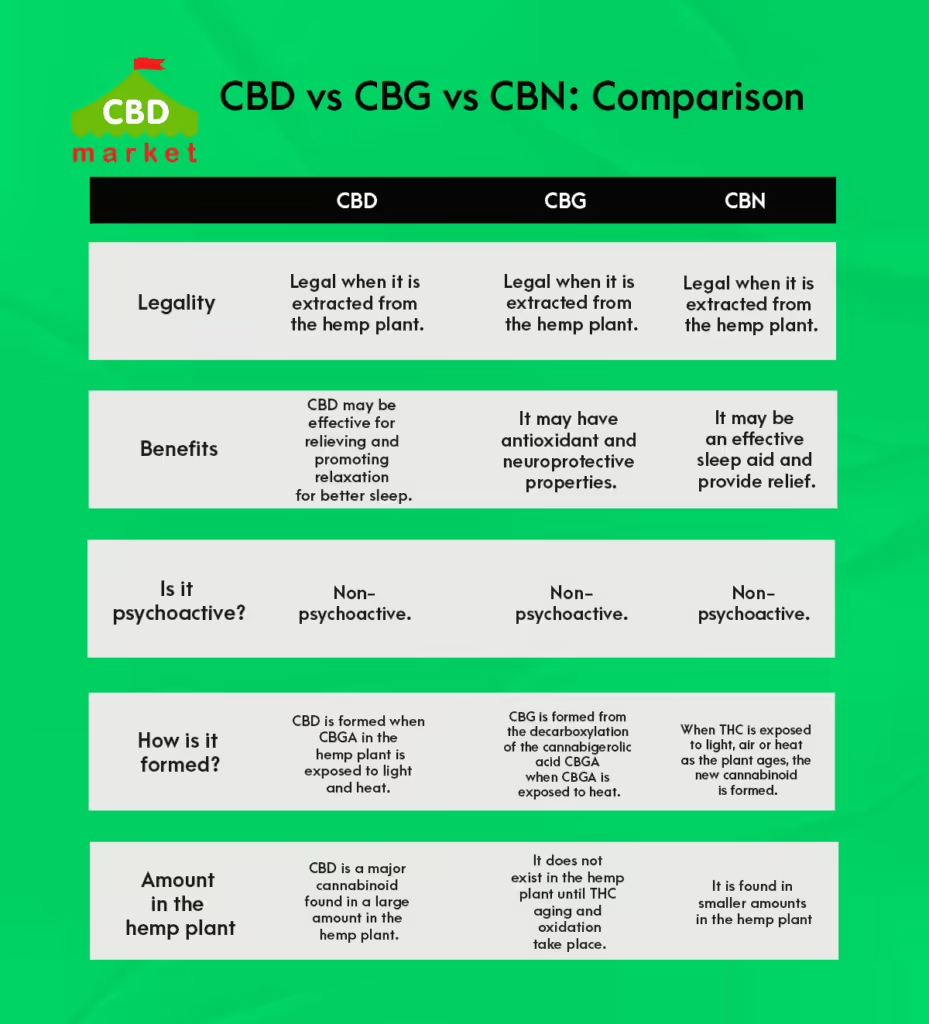
FAQs
Do CBC, CBN, CBDA and CBG Contain THC?
CBC, CBN, CBDA, CBG and THC are different cannabinoids found in the hemp and marijuana plants. Each cannabinoid is unique. Hemp plants are specially cultivated to produce low levels of THC to meet the federal law that cannabinoid products must contain less than .3 percent THC. However, when THC oxidizes, it converts to CBN.
Is CBN stronger than CBD?
CBD is more studied than CBN, but both bind to the CB1 receptor. In large doses, CBN can produce a very mild psychoactive reaction. CBD is non-psychoactive. Given the potential to produce a mild psychoactive response, CBN is considered stronger. You would have to consume a large dose though, and that would be difficult because it is a minor cannabinoid that is more difficult to source.
Is CBD or CBG better?
It is not a matter of one cannabinoid being better than the other. Each kind of cannabinoid has specific impacts on the body. The “better” cannabinoid depends on the wellness issues you are experiencing and want to address. Though each is believed to produce effects like reduced irritation, there are differences. For example, both CBD and CBG interact with the 5-HT1A serotonin receptor. CBG is an antagonist and CBD is an agonist.
Is CBN or CBG better for sleep?
Studies have found that CBG may be better for sleep because it can have muscle-relaxing properties. CBN has been found to have a more significant effect on neuroprotection.
Can you take CBD, CBG, CBN, and CBC together?
Yes, you can. The full spectrum products contain all of the cannabinoids, flavonoids, terpenes and other compounds in the hemp plant. The broad spectrum products contain everything except THC or only a trace of THC below the 0.3 percent legal limit. When you consume a full spectrum or broad spectrum product, you take CBD, CBG, CBN and CBC together.
Will CBN and CBG get you “high”?
Neither CBN nor CBG will get you high like THC can. CBN is produced from a breakdown of THC. As mentioned, large doses of CBN may produce a mild psychoactive response. CBG has no psychoactive impacts.
Final Thoughts on Exploring the Cannabinoid Family
For some people, CBD is going to be enough to get their wellness needs met. However, people with more diverse wellness needs may find that it’s time to graduate to some more complex cannabinoid combinations. Choosing a product that already works out the formula for you is the best way to dip your toe in the water when expanding your horizons.
Sources
- https://www.ncbi.nlm.nih.gov/pmc/articles/PMC3596650/
- https://pubmed.ncbi.nlm.nih.gov/23941747/
- https://pubmed.ncbi.nlm.nih.gov/20332000/
- https://onlinelibrary.wiley.com/doi/abs/10.1111/jphp.12082
- https://pubmed.ncbi.nlm.nih.gov/27094344/
- https://www.ncbi.nlm.nih.gov/pmc/articles/PMC2967639/
- https://www.sciencedirect.com/topics/neuroscience/cannabigerol
Share this post


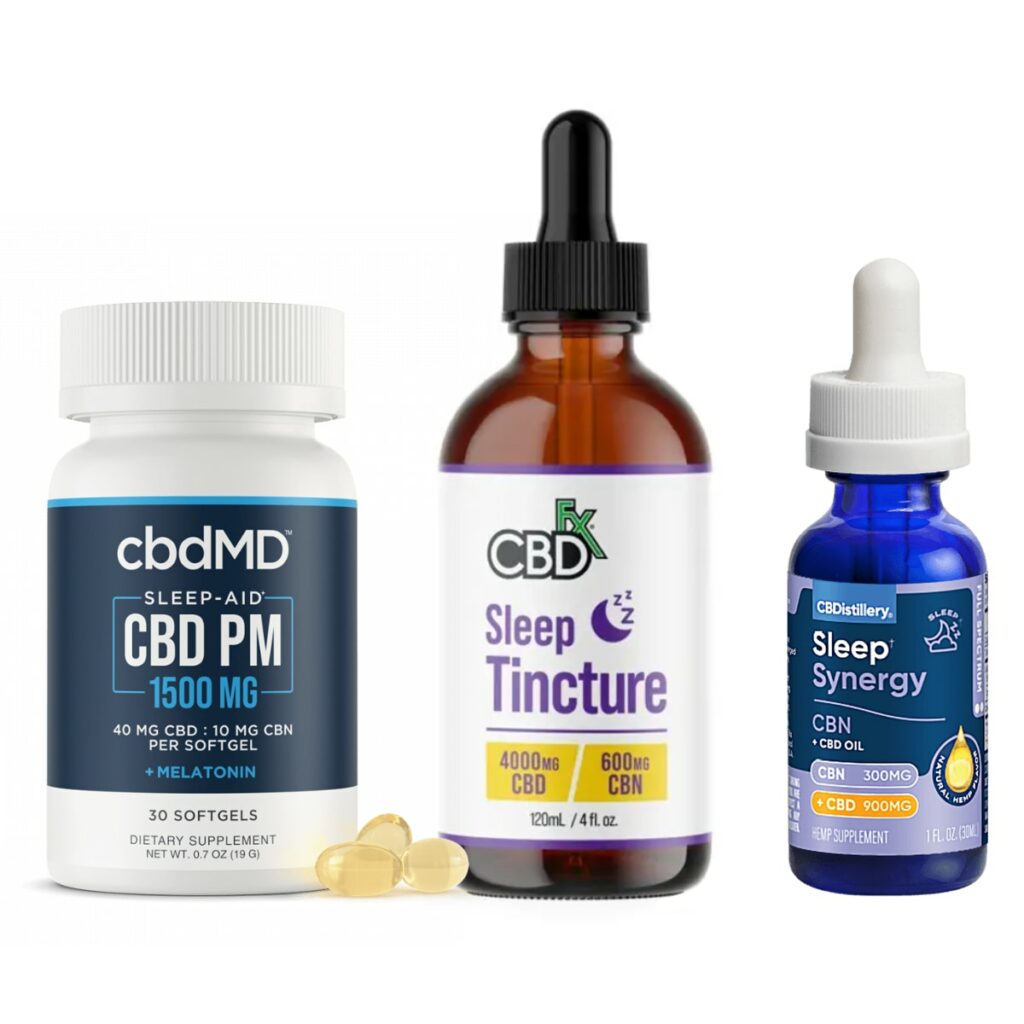
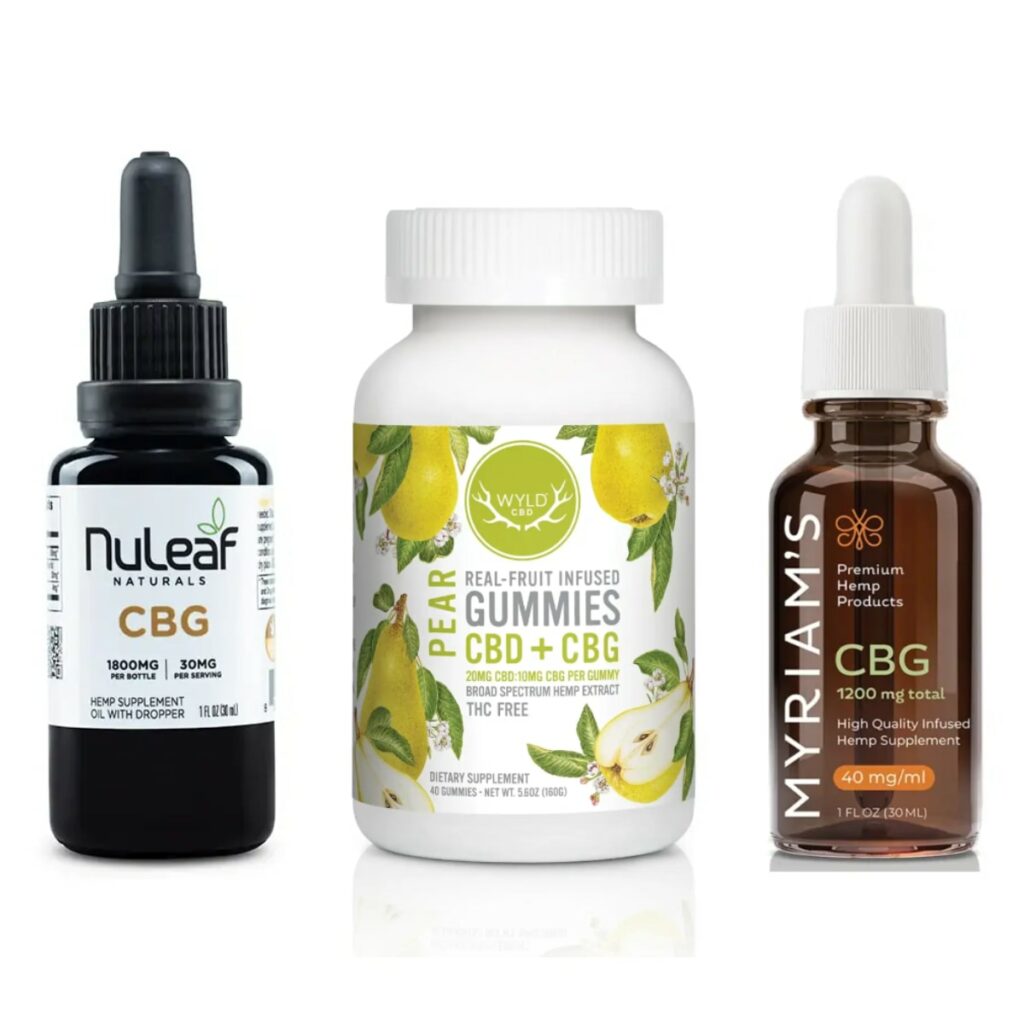
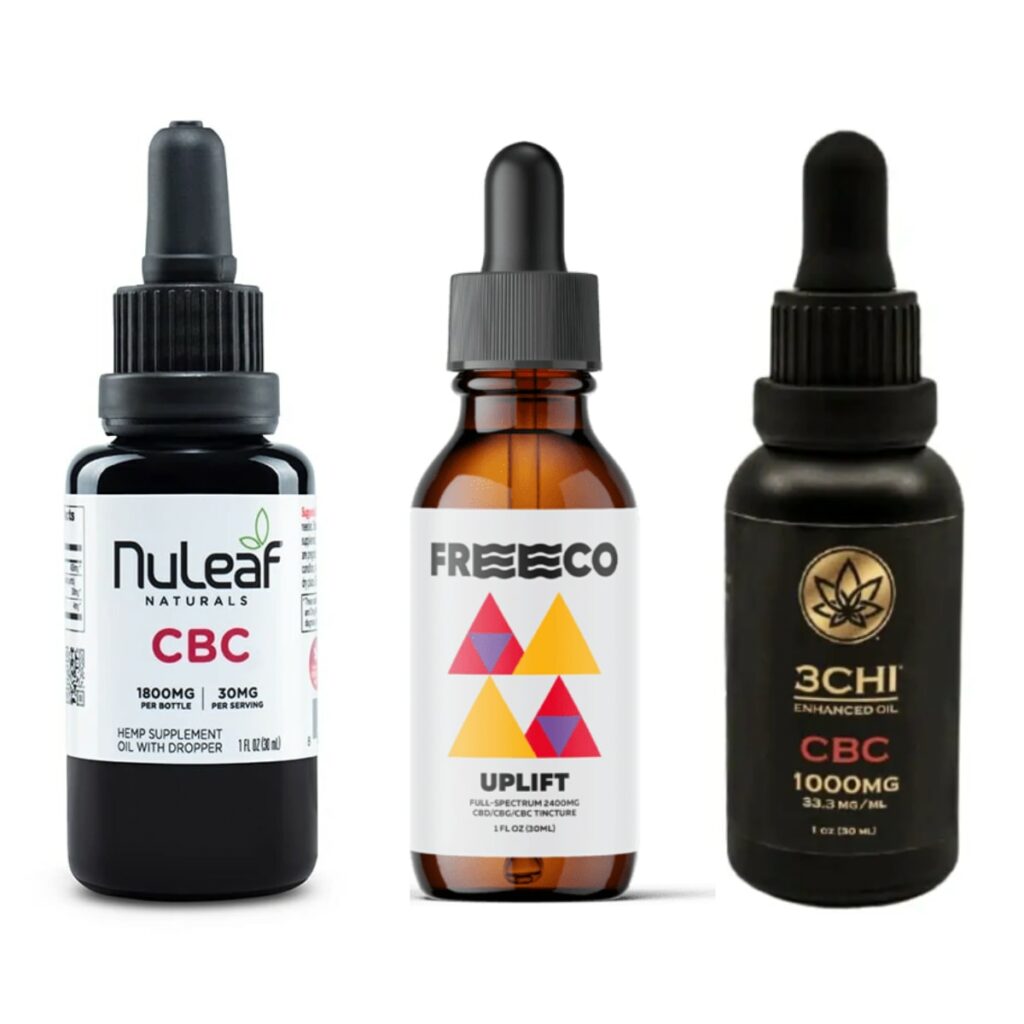
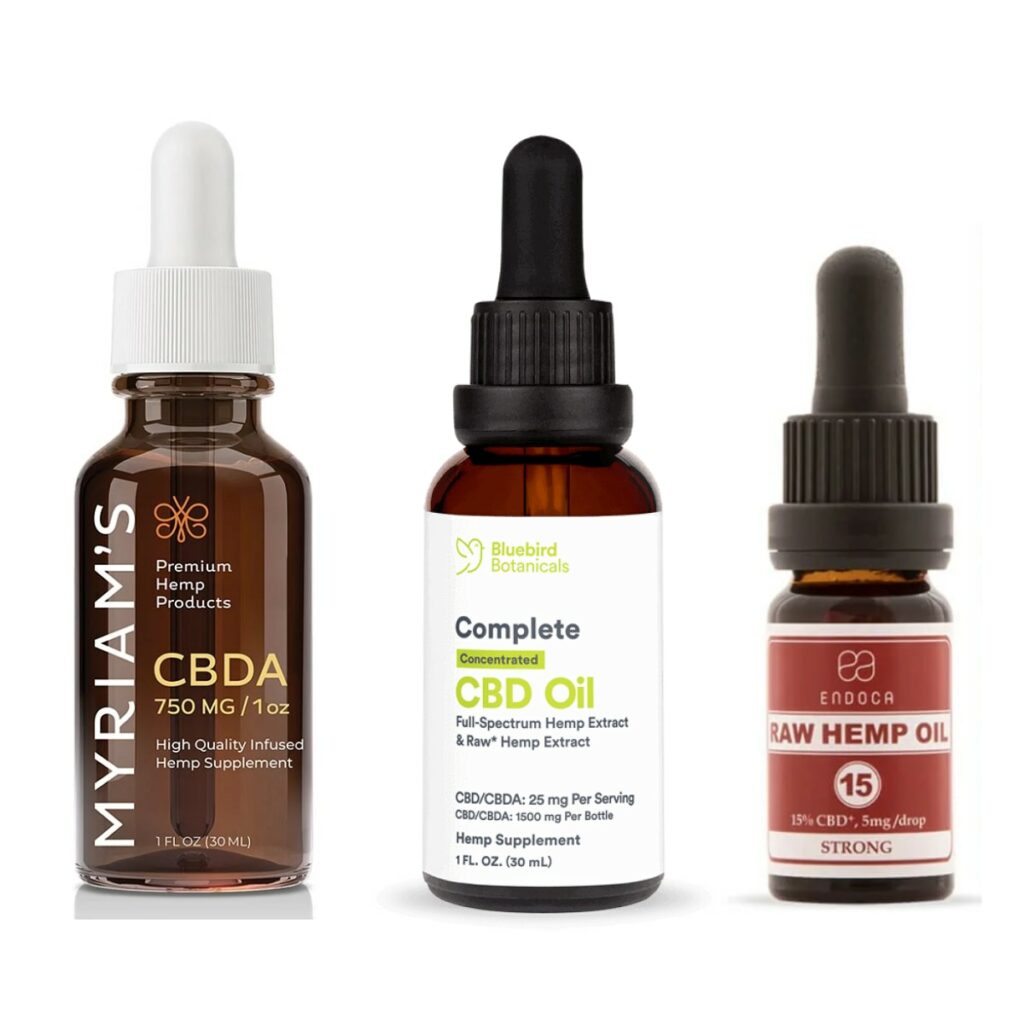
0